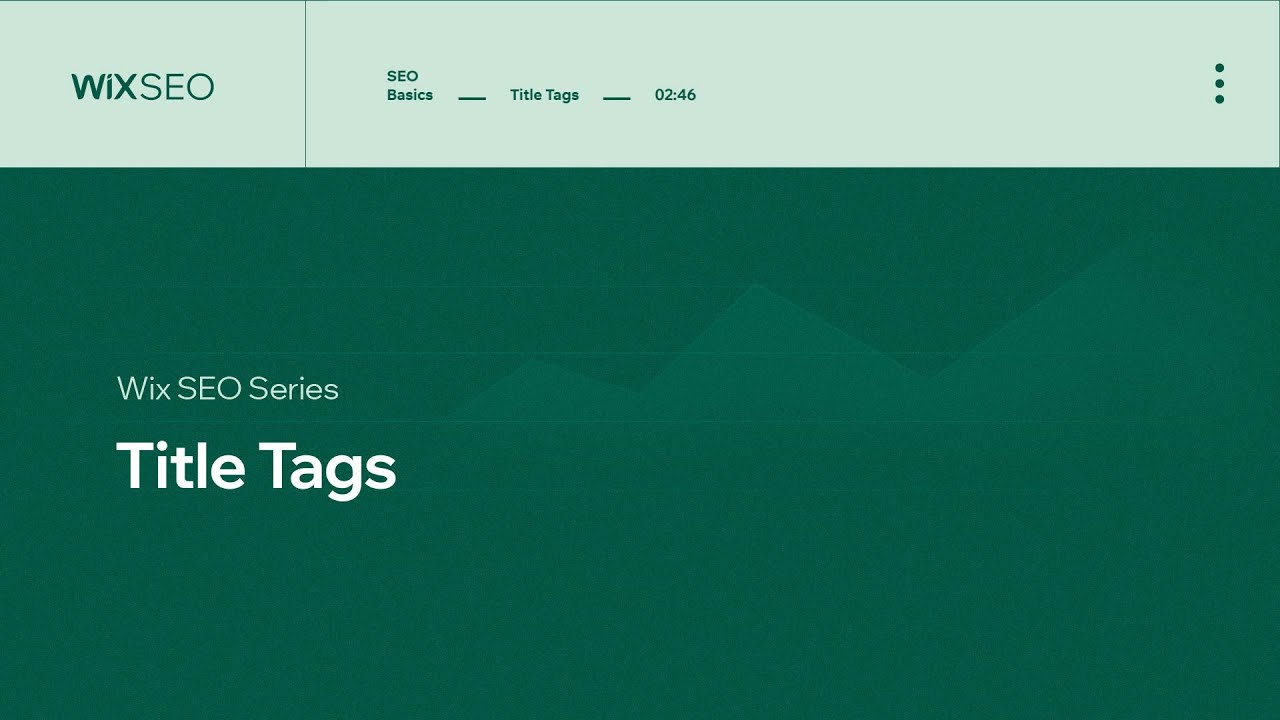Recently, google clarifies title tag guidance, which is an important element of on-page SEO. Title tagsare HTML elements that specify the title of a web page and appear in the browser's tab and search engineresults pages (SERPs).
They help search engines understand what a page is about and provide users with a preview of the page's content. In this article, we'll discuss Google's updated guidance on title tags and what it means for SEO.
What Has Google Clarified?
Google has clarified that title tags should be descriptive and accurate, and they should reflect the content of the page. Google's search results will now display the title tag in full, as long as it does not exceed 600 pixels.
This means that you can use more characters in your title tag than before, but you should still keep it concise and relevant.
Google also recommends avoiding keyword stuffing in title tags, which means using too many keywords or repeating them multiple times. Instead, title tags should be written for users, not search engines.
They should provide a clear and concise summary of what the page is about, and they should be relevant to the user's search query.
Google Clarifies Title Tag Guidance - Why Is This Important?
Title tags are one of the most important on-page SEOelements because they provide context to search engines about the content of a page. They also help users understand what a page is about before they click on it.
A well-crafted title tag can improve click-through rates (CTR) from search results, which can result in more traffic to your website.
The new guidance from Google reinforces the importance of writing descriptive and accurate title tags that provide value to users. By following Google's recommendations, you can improve the relevance and usefulness of your title tags, which can lead to higher rankings in search results.
How To Optimize Your Title Tags

How to Optimize Your Website’s Title Tags | Wix SEO
To optimize your title tags, start by researching relevant keywords for your page. Use tools like Google's Keyword Planner or Ahrefs to find keywords that are relevant to your content and have a high search volume.
Then, incorporate those keywords into your title tag in a natural and meaningful way.
Make sure that your title tag accurately reflects the content of your page. Avoid using clickbait or misleading titles that do not accurately represent the content of the page.
Your title tag should provide a clear and concise summary of what the user can expect to find on your page.
Keep your title tag concise and relevant. Google now displays up to 600 pixels of your title tag, which translates to around 50-60 characters. Use this space wisely by including the most important information at the beginning of your title tag.
This will ensure that users can see the most relevant information before the title is cut off.
Avoid keyword stuffing or using too many keywords in your title tag. Instead, focus on writing a title tag that provides value to users and accurately reflects the content of your page.
Keyword stuffing can actually harm your SEO efforts and lead to lower rankings in search results.
Avoiding Keyword Stuffing In Title Tags - Best Practices For SEO
Keywords play an essential role in optimizing a website for search engines, and title tags are one of the most critical elements where keywords can be used to optimize the page's content.
However, overusing keywords can harm your website's SEO and result in lower rankings. This article will explore the concept of keyword stuffing in title tags and provide best practices for avoiding it while optimizing your website for search engines.
What Is Keyword Stuffing In Title Tags?
Keyword stuffing is the practice of overusing keywords in an attempt to manipulate search engine rankings.
In the context of title tags, keyword stuffing refers to the excessive use of keywords in a page's title tag, with the goal of ranking higher for those keywords in search engine results pages (SERPs).
Keyword stuffing can include the repeated use of a keyword, adding irrelevant keywords, or filling the title tag with long-tail keywords.
Why Is Keyword Stuffing Harmful For SEO?
Google's algorithms are sophisticated enough to detect and penalize websites that engage in keyword stuffing. Overusing keywords can result in a lower ranking, as search engines consider it a black hat technique used to manipulate rankings.
Keyword stuffing can also result in a negative user experienceas it makes the content appear spammy and difficult to read.
Best Practices For Avoiding Keyword Stuffing

Keyword Stuffing: What is Keyword Stuffing? How to Avoid It? - Dopinger.com SEO Tutorial
To avoid keyword stuffing, it's crucial to focus on writing descriptive and accurate title tags that provide value to users. Here are some best practices to consider:
- Write for Users, Not Search Engines- Title tags should be written for users, not search engines. They should provide a clear and concise summary of what the page is about and be relevant to the user's search query. Avoid adding keywords just for the sake of ranking higher in search results, as this can harm your website's SEO.
- Use Relevant Keywords- Using relevant keywords in your title tag is essential to optimizing your page for search engines. However, it's important to use them sparingly and in a natural way. Use tools like Google's Keyword Planner to find relevant keywords and incorporate them into your title tag in a way that provides value to users.
- Keep it Concise and Accurate- Google now displays up to 600 pixels of your title tag, which translates to around 50-60 characters. Keep your title tag concise and relevant, and ensure that it accurately reflects the content of your page. Avoid using clickbait or misleading titles that do not accurately represent the content of the page.
- Avoid Overusing Keywords- Avoid overusing keywords in your title tag. Instead, focus on writing a title tag that provides value to users and accurately reflects the content of your page. Overusing keywords can harm your SEO efforts and lead to lower rankings in search results.
People Also Ask
What Is A Title Tag In SEO?
A title tag is an HTML element that specifies the title of a webpage. It is displayed in the search engine results pages (SERPs) as the clickable headline for a given result. Title tags are an essential on-page SEO element as they provide both search engines and users with a brief and accurate summary of the webpage's content.
How Important Are Title Tags For SEO?
Title tags are crucial for SEO as they help search engines understand the content of a page and display it accurately in the search results. They also provide users with a clear and concise summary of what a page is about, which can impact their decision to click through to your website.
Can I Use The Same Title Tag On Multiple Pages?
It is not recommended to use the same title tag on multiple pages as it can cause confusion for search engines and users. Each page on your website should have a unique title tag that accurately reflects the content of the page and includes relevant keywords.
How Do I Optimize My Title Tags For SEO?
To optimize your title tags for SEO, it's important to use relevant keywords and provide a clear and concise summary of what your page is about. Keep your title tags concise, accurate, and relevant to the user's search query. Avoid keyword stuffing and use tools like Google's Keyword Planner to find relevant keywords to incorporate into your title tags.
Conclusion
Google clarifies title tag guidance reinforces the importance of writing descriptive and accurate title tags that provide value to users. By following Google's recommendations, you can improve the relevance and usefulness of your title tags, which can lead to higher rankings in search results and more traffic to your website.
Remember to research relevant keywords, accurately reflect the content of your page, keep your title tag concise and relevant, and avoid keyword stuffing. With these tips, you can create effective title tags that improve your SEO efforts and help your website stand out in search results.

